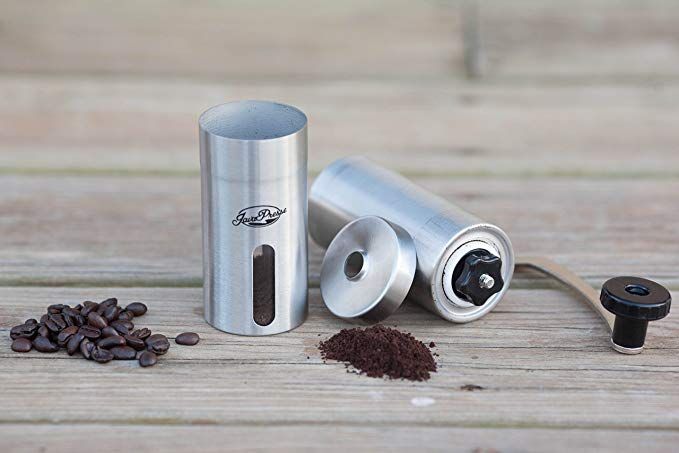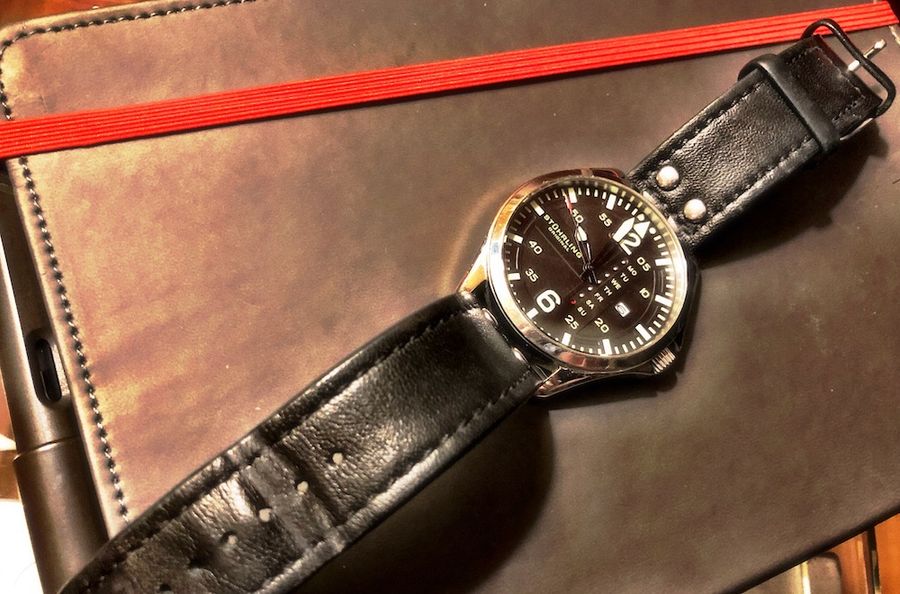OK, not quite.
Nevertheless, a process I started last year is accelerating, and while "going analog" isn't accurate, it captures the feel better, and is more accurate by far than "retro" or "simplifying."
It started with a watch.
I know, I know, the phone has become a de facto pocket watch, and for most guys, a watch is just a fashion piece. Nevertheless, around this time last year, I realized I was still looking at my wrist for the time after more than a decade without one, and spent a few days digging through options to find one. Was it truly analog? Maybe - it has hands as I wanted to avoid digital, was chosen in part for liking the aesthetic, but is still an electic-quartz timepiece.
Turn to a couple months ago. I ended up getting a hand grinder for my coffee.

Sure, I could go the Keurig route, or stick with buying pre-ground or dumping my beans in the grinder at the local grocery store, but I wanted fresh ground coffee - and the ritual of measuring in the beans, grinding, etc., doesn't just get me a richer coffee, but it makes me focus on what I'm doing, and what I am getting out of it. I appreciate it more when it's not just squirted out of some machine that's been fed a K-cup, or some grinds dumped in courtesy of a ground bag from Costco.
Then a couple weeks back I saw an article at Men of the West on bullet journals.
I was already familiar with the concept that items written by hand are retained in memory better than those that are typed. For that matter, handwriting out my own notes and summaries has long been a staple of my studying practice. Memory, however, wasn't what attracted me to this.
I've used a variant of the "Getting Things Done" method for a while, and in combination with various apps like "Things" had little issue going through my day. The issue is that the method - which works - tends to put you into an autopilot. You make a decision, file things into the appropriate day, and forget about it. Even done purely analog without apps, it tends to have an "autopilot" feel, but using apps which make it all too easy to schedule auto repeating tasks? What at first appears to be a blessing over time leads to perfect storms of "change out the AC filter" scheduled on days that you can't do so.
I'd lost sight of the forest.
Going handwritten didn't make it necessary to drop GTD as a method, but several useful concepts from it still work well with a bullet journal, such as "if it can be done right now just do it, otherwise, note it down", and in many ways I find a lot of the GTD methods map well. Several other things about the bullet journal are very appealing to me though as a methodology. First, it's not just a "to do" - it is also a journal of sorts for noting down events of the day and month. Second, there's a much greater awareness of the big picture - not just the events for the day and the next, but of how they fit into the month and year, as you're explicitly encouraged to review your day, carry forward incomplete items to the next day (or into the month/future logs), and thus spend time considering the flow of what is going on. Finally, this big picture is possible because the method as refined does a good job of scoping.
Need to give the dogs their heartworm meds each month? Make a note in the future log in each month. Along with vacation plans, and so on. Then, when it's time to plan out a month, fill in which days you're doing what for major scheduled events. "Collections" also make it easy to have running lists related to specific projects or scopes that are not time-based, such as reading lists, etc.
It requires no special pages or books, nor do you find yourself limited to the spaces laid out in in standard daily planner sheets. All you need is blank pages - with lines, graph squares, or gridded dots.
In the end, I find that, outside of the pleasure of the tactile sense of writing with my fountain pen in a small bound notebook, I'm more aware of time, deadilines, and actually getting more done, with less repeated pushing of todo items, and fewer frivolous ones entered. I also have the flexibility to put down anything I want or need, down to diagrams, doodles, etc.

In the end, along with other projects like shifting to a NAS box as a dedicated home server and personal backup of data "in the cloud", I am taking steps to be more aware of what I'm working with, to be more manual in what I do, to be less "automated" except where it makes sense.

